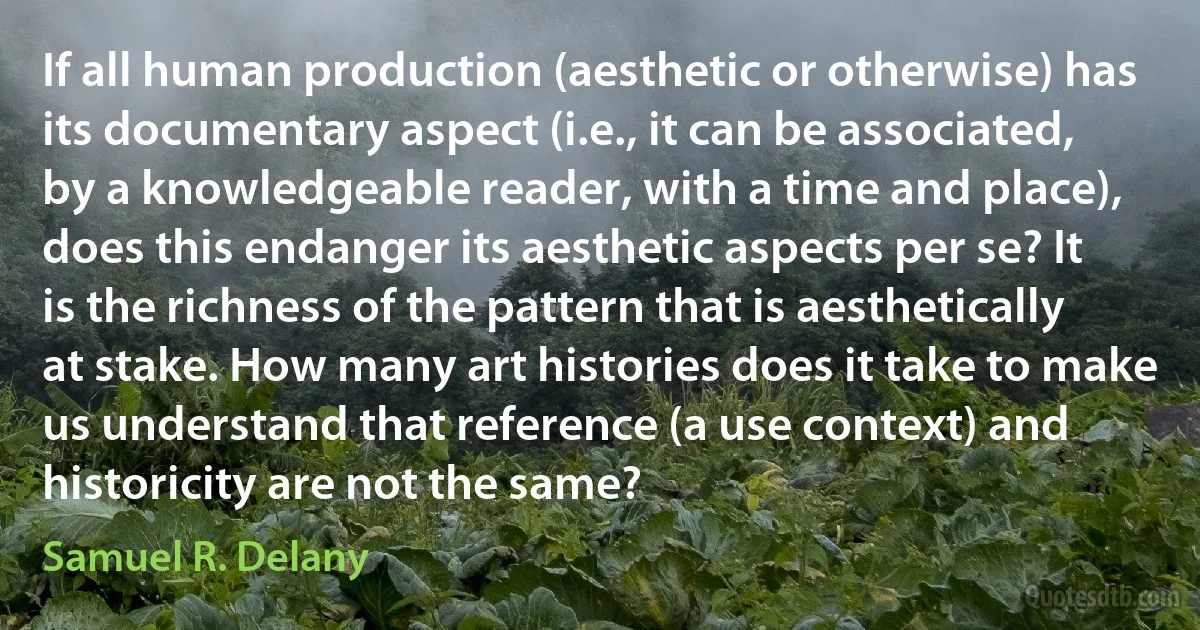
If all human production (aesthetic or otherwise) has its documentary aspect (i.e., it can be associated, by a knowledgeable reader, with a time and place), does this endanger its aesthetic aspects per se? It is the richness of the pattern that is aesthetically at stake. How many art histories does it take to make us understand that reference (a use context) and historicity are not the same?
Samuel R. DelanyRelated topics
aesthetic art aspect context documentary human place production take time useRelated quotes
On some positions, cowardice asks the question, is it expedient? And then expedience comes along and asks the question, is it politic? Vanity asks the question, is it popular? Conscience asks the question, is it right? There comes a time when one must take the position that is neither safe nor politic nor popular, but he must do it because conscience tells him it is right.

Martin Luther King Jr.
A human being should be able to change a diaper, plan an invasion, butcher a hog, conn a ship, design a building, write a sonnet, balance accounts, build a wall, set a bone, comfort the dying, take orders, give orders, cooperate, act alone, solve equations, analyze a new problem, pitch manure, program a computer, cook a tasty meal, fight efficiently, die gallantly.

Robert A. Heinlein
Let us pass to the despotic part of the soul, spirit. We must not eliminate it utterly from the youth nor yet allow him to use it all the time. Let us train boys from earliest childhood to be patient when they suffer wrongs themselves, but, if they see another being wronged, to sally forth courageously and aid the sufferer in fitting measure.

John Chrysostom
Everywhere Christians are tempted to take the easy path, to seek "peace" and "security" and flee from pain and affliction, to view life as an occasion for the enjoyment of earthly blessings, instead of a time of trial in which our eternal destiny is to be decided. But God expects more than this from those who glory in the name of Orthodox Christians.

Seraphim Rose
I perfectly understand the particular attention which you pay to the question of nuclear energy, and fully realize the possible dangers and catastrophes which might result for mankind from an irresponsible attitude. In this field my wish is for Iran to put all her efforts towards the peaceful use of atomic energy. We shall continue to co-operate with all the nations of the world to attain this end in the interests of human society.

Muhammad Reza Pahlavi
